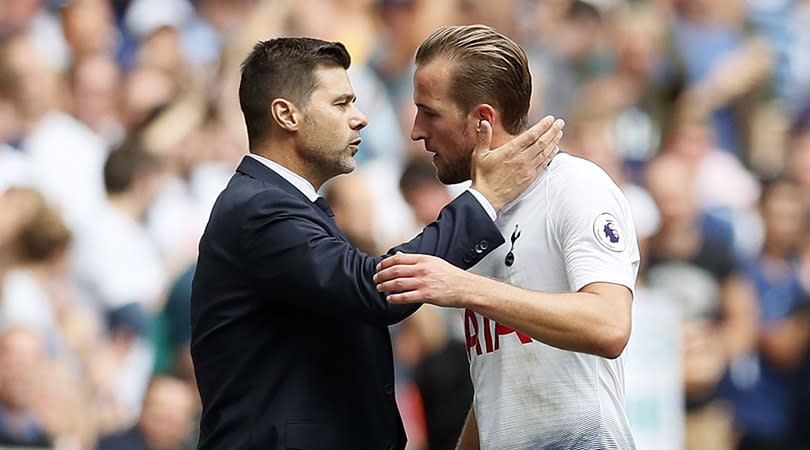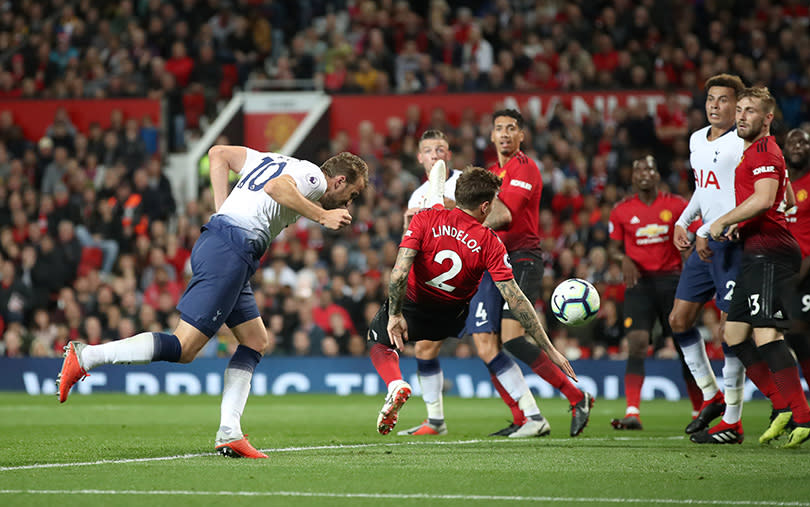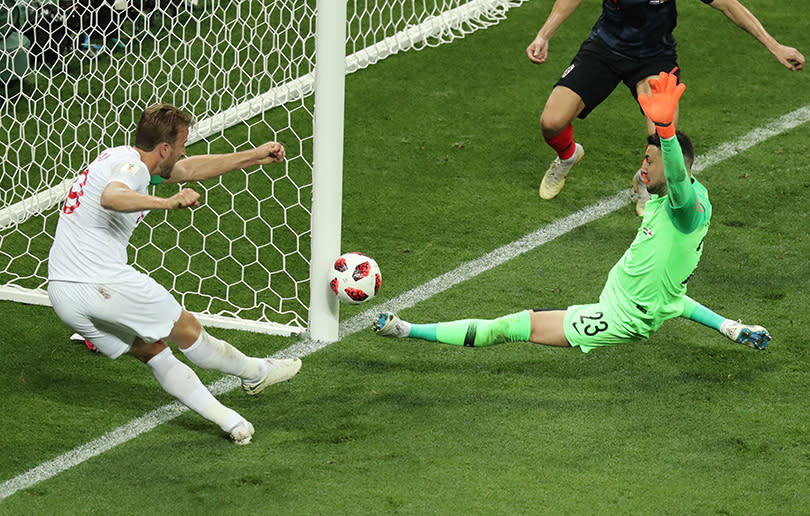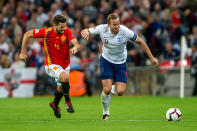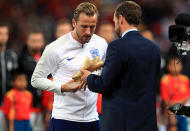Something is amiss with Harry Kane – but it’s not all his own doing
Outwardly, all seems normal. Harry Kane finished the 2017/18 season with another greedy haul of goals, amassing 41 in all competitions, and then brought the Golden Boot award back with him from the 2018 World Cup.
In the months since, there’s been apparent reassurance too: the August curse has been broken. Kane scored twice before the international break and his Tottenham side have won three games from four.
And yet something is clearly amiss. That unease was felt at Wembley on Saturday. Kane looked awkward. Even in peak condition he’s hardly a smooth athlete, but there was a clunkiness to him which was hard to ignore. At the top of his game he looks well-oiled.
READ MORE: Does Southgate really need to persist with three at the back?
READ MORE: Lloris fined £50,000 banned from driving for 20 months
READ MORE: Five talking points from England's win over Switzerland
He’s not elegant, but when his pistons are greased and his motor is running, there are no pauses in his game. Chances will be dispatched within a heartbeat; play will be switched and developed with an instinctive lay-off or diagonal.
He may have started well enough against Spain, muscling out of a tackle to begin the move which delivered England’s only goal, but he quickly fell away with the rest of his side, hacking at his few chances and watching on as the ball swished around with southern European class.

Warning signs
Tottenham supporters would have seen this coming – the change began in March. Kane had started the New Year well: five goals in nine Premier League appearances had included match-changing headers against Southampton, Crystal Palace and Arsenal, and that last-second penalty at Anfield.
Then came Bournemouth and a collision with Asmir Begovic which left him clutching at his ankle, and would keep him out of the starting line-up for almost a month.
It was a relatively minor injury, but it was his third in the same area within two years. Those who know suggest that damage to the malleolar region tends to be cumulative. Whatever the truth, Kane is yet to return to his pre-Bournemouth level. Goals have helped to disguise that – he has scored at critical moments for club and country in the months since – but the 25-year-old has performed only in bursts and without the forcefulness which has powered him to the top of the game.
The statistics are troubling. Before his latest injury, Kane was averaging 5.96 shots per game; in the months after he has receded to a more conservative 2.56. Analytics are a rough science, but that’s still telling: at his best, Kane shoots with great freedom and with little invitation.
Conversely, the current reticence betrays obviously less than himself. When presented with chances, he has become overly-deliberate and hesitant; opportunities are being over-thought, split seconds are being wasted and, more often than not, doors he used to barge through are being shut in his face.
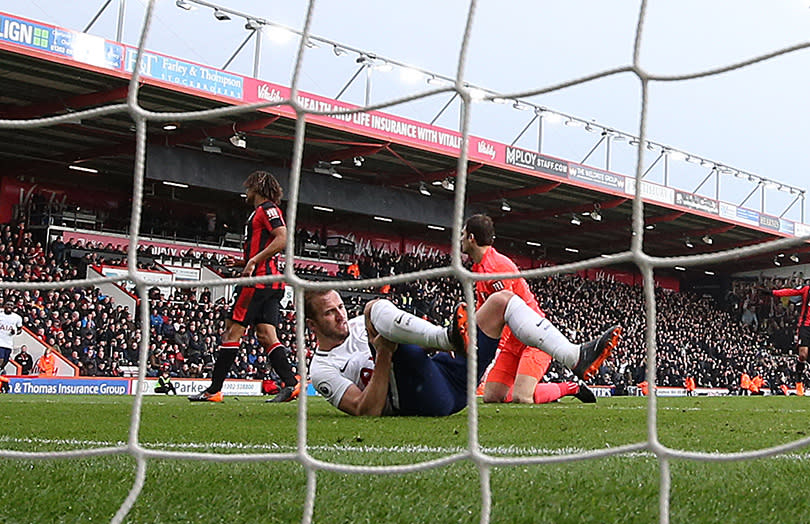
In the broad sense, injury explains that – as does rushed recovery. Until the very last week of the season, Tottenham were competing in a three-way battle for third place. It’s one they eventually won, courtesy of Kane’s measured finish against Newcastle, but the situation’s urgency demanded that he return to action as quickly as possible.
From there, he went straight to the World Cup and, following England’s elimination, back into pre-season with a shortened holiday. Had Spurs manoeuvred more sensibly in the summer transfer market, his involvement from the start of the season might not have been essential. But they didn’t, and it was.
Pile-up
Despite his injuries, Kane has played a vast amount of football in the last year: his start against Spain at the weekend was his 63rd since the beginning of the 2017/18 season. Over the longer term, he has appeared in all but 13 of the Premier League games played by Tottenham since August 2014, taken part in three international tournaments, and enjoyed just one summer off.
READ MORE: Concerns growing for Kane’s fitness
READ MORE: We have plenty of hard work to do to reach elite, says Kane
He is Spurs in a figurative and literal sense, and it’s proving a great strain. The anecdotes about his training habits are well known: he’s a consummate professional with a peerless work ethic, and so he’s completely deserving of his success. However, the levels of energy and effort expended in its pursuit are formidable; it’s hardly surprising that he has misplaced his form within what looks like a fog of fatigue.
It’s a reasonable diagnosis, but probably a reductive one too. As such, it’s worth dwelling upon the texture of his last season, too. Kane’s first start after injury came at Stoke, scene of the now-notorious phantom goal incident. In super slow motion, it does appear that he got a glancing touch on Christian Eriksen’s free-kick – the Premier League agreed and credited him with the goal – but the post-match interview which followed was misinterpreted, mangled across social media and, to this day, remains a source of laboured mirth.
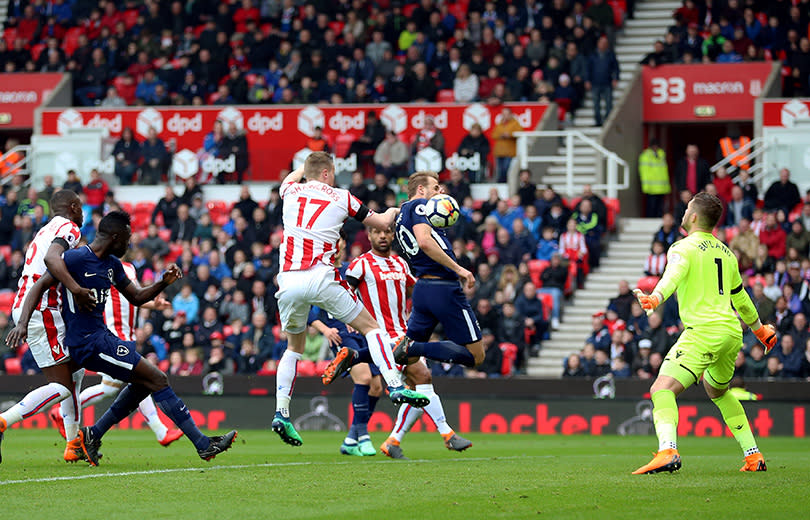
That reaction really was extraordinary. Kane is a good human being. He’s decent and well-intentioned, but is neither overly-polished nor image obsessed. He was guilty in that instance of failing to disguise his professional ambition and, while dull jokes and dribbling satire are now part of the football landscape, it was surprising to see just how widespread the condemnation was. Rival fans had their fun, predictably, but so too did journalists and fellow professionals. Bizarrely, a small group of Liverpool players even staged their own little Kane-themed sitcom across Twitter and Instagram.
Dealing with that kind of behaviour is part of a footballer’s job description now; to survive at the highest level, a player has to be able to block out the noise. For Kane though, it would have been his first time as anything other than a good news story. In his early days at Tottenham he was regularly dismissed and he has talked in the past of being energised by that lack of faith, but being the subject of public mockery would have been a new experience.
Stranger still has been the response to his World Cup efforts. Kane was not at his best in Russia, another legacy of that wet Sunday on the south coast, but he still shouldered a captain’s responsibility throughout the tournament.
Opportunistic finishes against Tunisia gave England the start they needed, his movement in the penalty box earned two penalties, and he was faultless from the spot in open play and during the shootout against Colombia. His Golden Boot award didn’t come with a Toto Schillaci fairytale or a Ronaldo flourish, but it was still deservedly won.

Fighting on all fronts
And yet, even that success has been piously reframed. Instead of being just another happy detail from a fun summer that almost everybody enjoyed, the Golden Boot has bred an undercurrent of resentment – and, most ridiculously, the re-characterisation of Kane as an individual player, someone happy to take credit for team performance. That is and always has been the traditional role of the centre-forward – it’s the thread which binds all great goalscorers – but in Kane it has been redrawn as a defect.
It’s a strange situation. Today, supporters have to forgive a lot. It’s not uncommon, for instance, for high performance to have to be isolated from flawed personality. Where there is footballing excellence, there is occasionally also tax fraud, domestic violence, and - in a few notable cases - bigotry. Kane is an antidote to that; a pure footballer loyal to the game’s integrity. Somehow though, perversely, there remains this great appetite for finding an imperfection in him.
The surrounding negative energy has reached a zenith. Even at this stage of the season, Kane finds him fighting battles on multiple fronts. Against himself, his physical limits and his club’s repeated failure to support him with proper squad depth. Against a narrative which, seemingly, has been waiting for his form to dip for four years now. And against a very British mood, defined by a very limited tolerance for success. Kane may look tired, but he also looks heavy – weighed down by the atmosphere, perhaps, or disorientated by the shifting winds.
Perhaps Liverpool have appeared on the horizon at just the right time. In the long term, Tottenham have issues to address and an icon to better protect. For now though, hopefully, the memory of all that mockery might just be enough to light Kane’s fire again and burn away the fog.

 Yahoo Sport
Yahoo Sport 






































